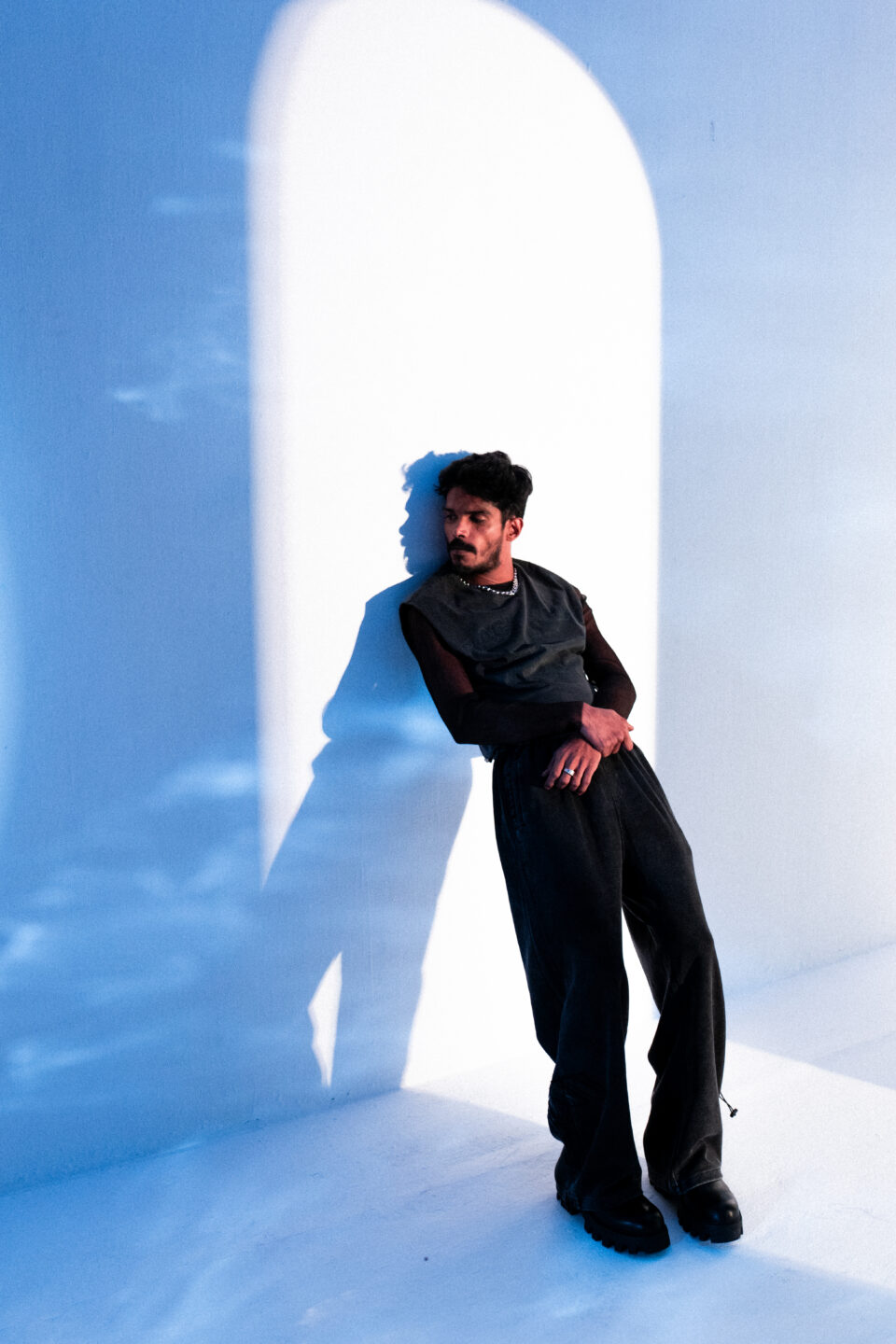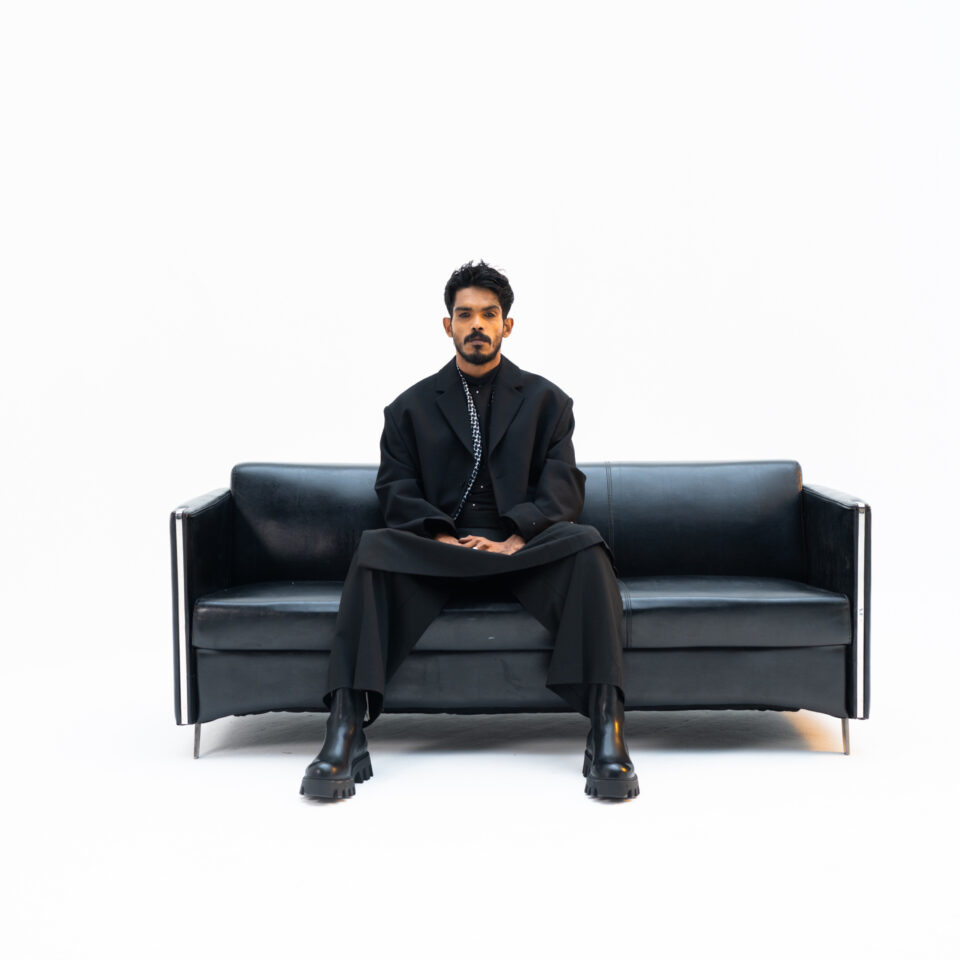
Dabzee
The musical King of the South has spoken
From the day he put out his first-ever track to his current discography, Kerala’s Dabzee lives life with a sense of awe and gratitude.
As the first artist from the South to be signed by Mass Appeal India, his journey is marked by milestones that have turned his dreams into reality. Collaborations with renowned names like KSHMR and Vedan have further solidified his place in the industry.
Against the backdrop of Kerala’s thriving music scene, Dabzee shares insights into the transformative power of music and the challenges faced along the way. With a blend of personal anecdotes and profound observations, the “Malabari Banger” rapper offers Rolling Stone India an glimpse into his world and the future he envisions for the Indian music landscape.
Rolling Stone India: Since the inception of your first song until now, how has the journey unfolded?
Dabzee: Well, it’s been nothing short of a dream come true, I must say. Even back in the day, as I listened to music, vivid imagery always accompanied the sounds. To this day, that ability to visualize aids me greatly in my writing process and creative endeavors.
I’m truly grateful for where I stand now, having been signed by Mass Appeal India, marking a significant milestone, particularly as the first artist from the South to do so. Collaborating with KSHMR, a longstanding aspiration of mine, has also become a reality, alongside other esteemed partners like Vedan. It’s truly indescribable—the feeling of dreaming something and then seeing it come to fruition.
Not sure if you’ve heard but Malayalam Music is the World’s Fastest Growing Category from India on Spotify, how do you feel about that?
Yes yes, I feel proud. I can clearly convey to people that we are now making strides towards the mainstream. In the Indian music industry, being associated with movies has long been the norm. However, this perception is not entirely accurate. In my upbringing and even now, people often praise movies starring actors like Amir Khan or Mammootty, appreciating their songs without necessarily knowing the composers, lyricists, or vocalists behind them.
There’s a significant lack of awareness regarding the collaborative efforts involved in creating a single track. It’s challenging to educate everyone about the intricacies of music production. However, the landscape has shifted, and now, there’s greater recognition for individual artists, such as rappers, and their contributions. The scene has exploded with over 10 to 15 rappers deeply engaged in their craft, indicating substantial growth and prominence in the industry. Personally, I find this evolution exhilarating, as I’m actively participating and collaborating with fellow artists in this dynamic environment.

Have your friends and family been supportive of your journey as a music artist?
Initially, there was uncertainty, and a lack of understanding about where to begin. I couldn’t quite figure it out… Yeah, my father faced similar challenges. It’s a societal issue, something many parents encounter, I believe, because there aren’t any clear paths or examples to follow.
For instance, people might say, ‘He’s a good singer, but can he make enough money?’ Whereas, if someone chooses a more conventional career like engineering, they receive more support. But this attitude stems from societal norms ingrained over time.
Nowadays, things might be changing, perhaps becoming more acceptable. From the beginning, my wife was supportive. She played a crucial role in supporting me during the initial stages. I remember discussing with her, expressing my need for time to pursue my passion. She responded positively, encouraging me to go ahead. It’s been two and a half years since then, and I’ve made significant progress. Now, both my father and everyone else are pleased with my achievements. More importantly, I’m content. I can confidently say that I can provide for my family through my artistic endeavors.
You’re known to go all out with your music videos. There are rumors you’ve been shooting something fun in Dubai.
Yeah, yeah, something exciting is on the horizon. Dubai feels like a second home to me. I lived there for six or seven years before returning to India. Now, I’m heading back again. Before, when I was there, I used to call it my “yah,” meaning my place. I’m headed there to shoot my upcoming project.
Congratulations on partnering with Mass Appeal, by the way.
Thank you. I feel immensely grateful, Alhamdulillah. A special shout out to my brother Ranbir Kapoor from Mass Appeal India, without whom nothing would’ve been possible.
Dabzee, being a rapper, how much does hip-hop as a genre mean to you?
Truth be told, I’m not deeply immersed in the hip-hop scene or constantly listening to it. It’s not something that has consumed me because, even now, I’m not entirely familiar with what’s happening in the genre. I don’t know who the top rappers are or who’s producing the most intricate tracks.
Until now, I haven’t been deeply involved, but I used to listen to various artists like Kendrick Lamar, NF, and others, particularly older tracks. Although I may not fully grasp the lyrical content, I appreciate the music and the overall mood of the songs.
However, I question why I should invest my time in something I don’t fully understand. On the other hand, if I enjoy a particular track, regardless of its lyrical content, I’ll still listen to it. That’s just how things go for me.
What kind of music did you listen to growing up in that case?
My father was into the era of Mohammed Rafi, so I grew up listening to a lot of that style of music. Then my elder brother came into the picture. During his childhood, he was into Kumar Sanu’s music.
During the 80s and 90s, there were plenty of hits in between. So, I was exposed to a lot of Hindi music and Qawwali during that time. When I came here, my mom would often play various songs at home, and I would listen to them attentively. Whenever a song came on, I would analyze its BPM (beats per minute) and tempo.
Wow, and what are your thoughts on listeners in South India in general?
In Kerala, among the audience using platforms like Apple Music or Spotify, I’ve noticed a unique trend. They tend to stick with tracks they enjoy for extended periods, often listening to them daily for four to six months. This consistent listening behavior leads to our tracks frequently making it onto their daily playlists. It’s quite remarkable because they’re not just casually listening; they’re actively engaged with the music, incorporating it into their daily routines.
I strongly believe in this because I’ve observed that listeners from Kerala, particularly in the Malabar region, have diverse tastes. They don’t confine themselves to one genre; instead, they enjoy a variety of music. For instance, I’m from Kerala myself, and I personally follow this pattern. I might listen to ‘Chaleya’ (by Arijit Singh and Shilpa Rao) at one moment, then switch to Vedan, followed by Divine and other artists. The enjoyment of music transcends language barriers for us; we appreciate music from all languages.
I’m confident that even in this modern era, people of all ages in Kerala continue to explore and enjoy music from various genres and artists, whether it’s Anuv Jain or others.

What’re your thoughts about the future of music in India?
I firmly believe it’s going to reach the next level, undoubtedly. Being from Malabar myself, I have a strong conviction about this.
What can we expect from Dabzee in the near future?
I personally have ambitious plans lined up for the future. By 2025, I aim to embark on a world tour following the release of my album and a couple of tracks in collaboration with Mass Appeal India. It’s going to be massive. The next album with Mass Appeal is in the works, and we’re going to elevate everything to the next level. There’s no doubt about it.
What’s one thing that bothers you a little about the future of music in India?
You know, everyone keeps talking about going international, but in my opinion, it’s not about going international; it’s about embracing the local. I strongly believe that being local is being international. Why? Because in my music, I represent my roots, my culture. I come from Malabar, from Changarang, from Kirikara, which are all within Kerala. And Kerala is part of India, and after that, anything beyond borders is international, you see. That’s how it works.
People might praise and say, ‘Wow, now you’re international,’ but I correct them, saying, ‘No, I’m local. I’m from Malabar, and I’m representing my culture.’ It’s not just a statement; it’s a reality, a realization that as an artist, I’ve come to understand deeply.
It’s easy to imitate or borrow from what’s already established, but those artists aren’t from Malabar or Bharat (India). They might excel in Hindustani, Carnatic, or Mapilapatay, but they’re not rooted in our culture.
And you see, even though various countries are doing their thing in techno or other genres, the sound originates from India. Yet, nobody seems to explore or appreciate the value of what we have here. India is rich in culture, from Rajasthan to Kashmir and everywhere in between. There’s music in every corner, reflecting our diverse heritage.




